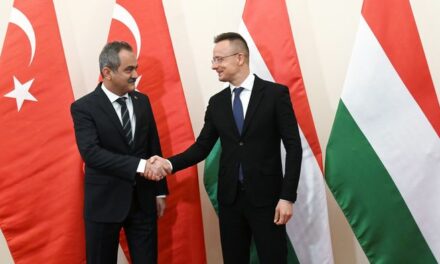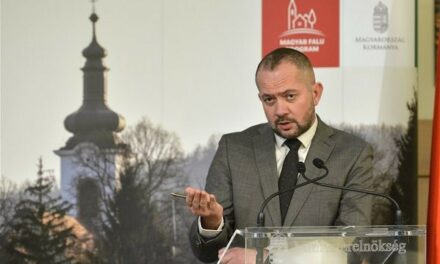László Szőcs wrote a note in Magyar Nemzet about the 21-year-old Hungarian university student from a good family who became an Islamist preparing for the bombings We quote some details from it.
The news is both disturbing and reassuring. A Hungarian suspected of terrorism was caught by TEK men in the garden city of Kecskemét - this is extremely worrying. The Hungarian authorities were alert and attentive - this gives cause for optimism. Somewhat.(…)
And for some reason, we always hoped that we could get away with it. Not only the actual act of terrorism, but also that the danger gets here. The Islamist attack in Vienna seven months ago was frighteningly close to us. Salem Abdeslam, the perpetrator of the terrorist attacks in Paris in November 2015, was able to visit Budapest's Keleti railway station twice, just two months before he and his companions killed 137 people in the French capital. According to information, he arrived here by car via Austria and then returned to Belgium.(...)
In a global village dominated by the Internet and free-flowing people, thoughts also flow freely. It is impossible to prevent some of our compatriots from being susceptible to extremist ideologies imported from abroad.
Experts do not consider Hungary to be a major terrorist target, but they point out that it is located in a logistically very favorable location on the migration route of Islamists. Budapest is only a few hours by car from Western Europe, and not much more from Bosnia-Herzegovina, this Western Balkan country that is making extensive inroads towards Croatia in the north, in whose mountains fighters who have also visited Afghanistan hide as Mujahideen.
We cannot set limits on the free movement of people and ideas. But we have to minimize the risks.(...) In Germany, where millions of Muslims live - the majority of them peacefully -, the constitutional defense counts 28,000 Islamists, and several serious Islamist assassinations have been committed in recent years.
We don't want to live in such a country. We are not xenophobic. It is not about the Turkish father of my son's childhood friend, who has integrated into Hungarian society, or the kebab shop in the corner, from whom we used to buy the döner platter. But it is about an uncontrollable crowd, an aggressive fraction of which - according to the French, German and Belgian examples - is already challenging the state.












